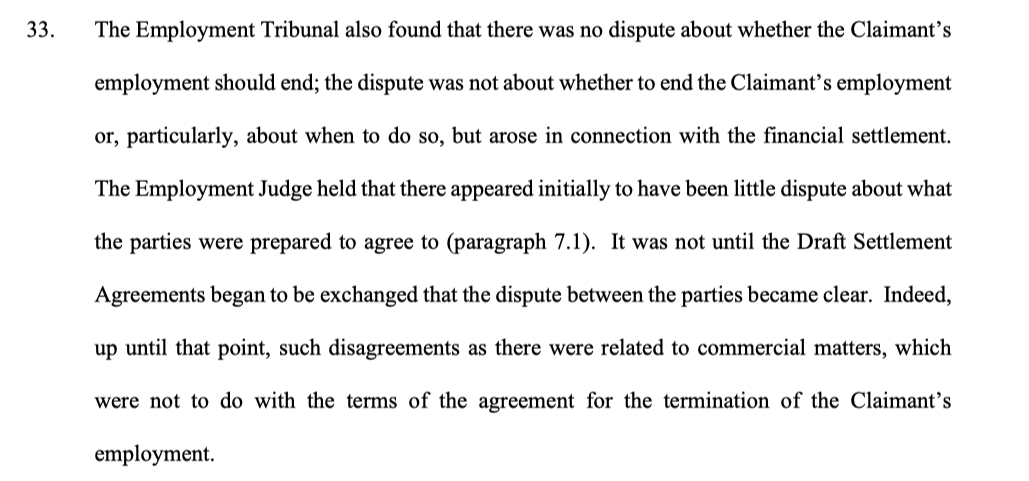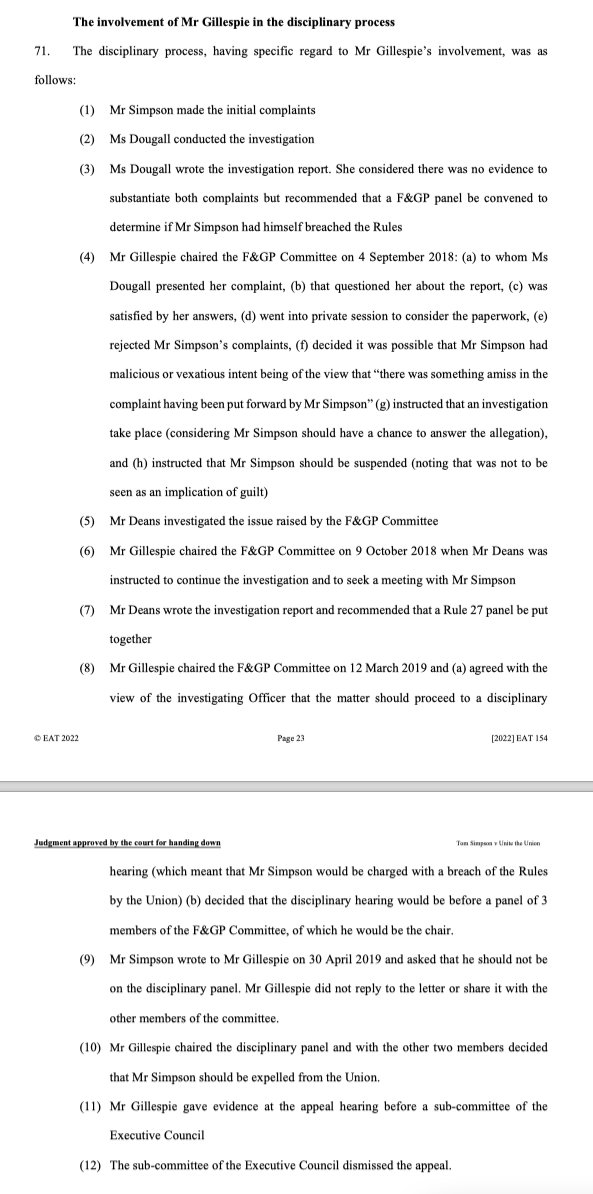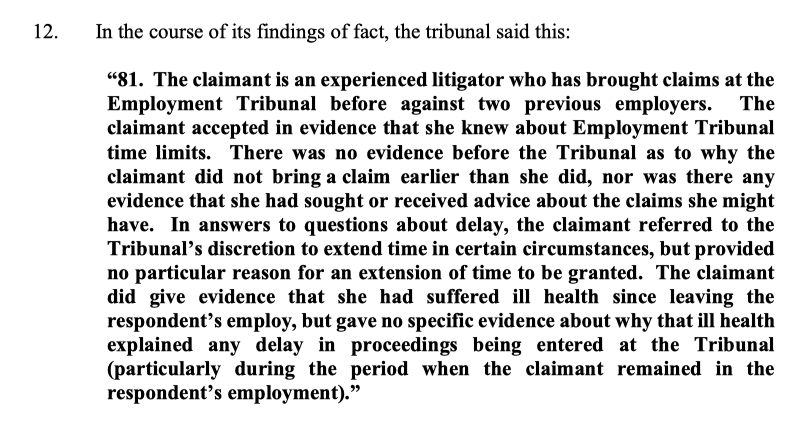
🧵Scheldebouw v Evanson: EAT follows Barnetson v Framlington Group in holding w/p privilege operates only if at the time of the negotiations the parties contemplated might reasonably have contemplated litigation if they couldn't agree.
assets.publishing.service.gov.uk/media/63e20de3…
#ukemplaw
assets.publishing.service.gov.uk/media/63e20de3…
#ukemplaw
2/ E was soon due to potentially to retire. At a meeting this possibility was discussed. Those discussions included agreeing on outstanding holiday entitlement. S made an offer in amicable discussions. It was rejected & E made a counter offer at a later date.
3/ E sought to refer to all of this in his Grounds of Claim. The question of whether it should be redacted as privileged was dealt with at a PH. E had accepted reference to the counteroffer (in green) should be redacted. An EJ agreed with E the remainder (blue) could be included. 

4/ The EAT noted Barnetson is the leading authority, & gives particular guidance on where to draw the line in pre-litigation cases, with the crucial question being whether the parties contemplated litigation or might reasonably have done so if they'd not agreed. 

5/ The fact that a party has made an 'opening shot' (i.e. a 1st offer of terms of settlement) is relevant but not necessarily conclusive - it'll always be a fact-sensitive question.
6/ In the present case, the ET had found that at the meeting at which the opening shot had been made, there'd been no expectation of S being sued - nothing more than an appreciation of the possibility (as always) of litigation. 

7/ There'd also been no dispute at that point about whether E's employment should end, but merely re the financial settlement for ending it. The ET found it was only later on, when draft settlement agreements went between them, that dispute became clear. 

8/ In dismissing the appeal, the EAT held the ET applied the objective test in Framlington correctly, & was entitled to find that when the offer was made there was no litigation contemplated. The suggested use of a settlement agreement was just out of commercial good sense.
9/ The EAT emphasised that whilst there's no need for hostility before the privilege is invoked, the ET was entitled to take account of the amicability of discussions in applying the test. 

10/ To put it simply, at the time of the initial offer, the parties were in discussion about a matter which though both fully expected to resolve, such that neither of them were contemplating litigation. Thus the w/p privilege was inapplicable to those early discussions. 

• • •
Missing some Tweet in this thread? You can try to
force a refresh










